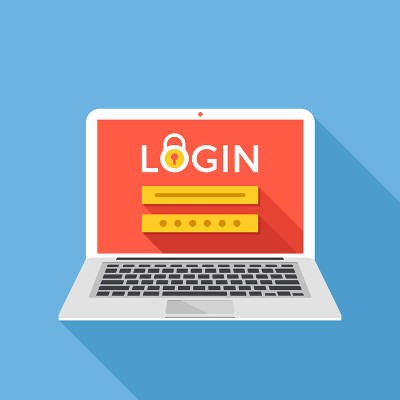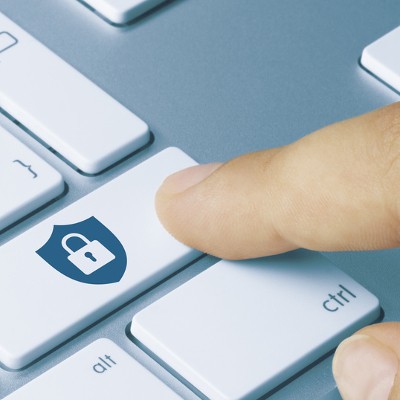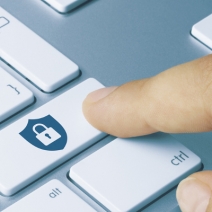Argentum IT LLC Blog
You don’t need us to tell you that it’s extremely dangerous to hand out information to just anyone that contacts your business. This is important to keep in mind, especially considering how the majority of threats can be sent via email. You’ll likely encounter situations where you need to consider whether or not to click on attachments, as you could potentially put your business at risk.
Passwords are all over the place these days, whether they’re required to access an online account, or access the devices used to open these accounts. While both types of passwords can make for ideal security conditions, this is only the case if the passwords are strong. If your passwords can be guessed by just about anyone, can you really call it a security measure? New insights from SplashData show that passwords aren’t being considered as much as they need to be.
You can never know whether or not that app you just downloaded to your smartphone can expose your data or identity to risk. While Google Play and the iTunes store certainly put efforts into ensuring that users can safely browse their app stores, it’s unlikely that they can find every single malicious app out there before it infects someone’s device. Therefore, you need to consider the following measures to ensure that you don’t put your business at risk by downloading unsecure apps.
Insider threats contribute to a significant number of data breaches. These cases of data exposure are enabled by a member of your staff, whether they intended to harm your business or simply made an honest mistake. With so much focus directed toward the threats out in the world, sometimes we forget that the biggest dangers can be among our ranks. To make up for this, we’ll discuss a few ways to keep insider threats from doing your business too much harm.
Considering how often hackers target financial credentials like credit card numbers and expiration dates, it’s not surprising that ATMs can provide a wealth of information to them. Hackers are willing to go exceedingly far just to get their hands on these credentials--including physically altering the devices themselves to install skimmers and other technology on them. Unless you know what to look for, it can be difficult to tell if a machine has been tampered with.
Each worker within an organization is delegated some sort of responsibility based on their role. Managers are responsible for managing, while human resources keep all workers accountable for their responsibilities. Yet, there are multiple responsibilities designated to all employees who use technology for their everyday duties.
With the surge in the number of small and medium businesses that have fallen prey to malware and cyber criminals, there is a lot of focus of what an organization can do to prevent being a victim and how the company should handle themselves after an attack. There is another key factor to preventing cyber criminals from penetrating into your network: your employees.
Do you let your employees bring their own devices in for use on your company network or Wi-Fi connection? If so, we’re sure that they love the freedom that you provide for them, but we must warn you of the dangers that this can bring to an otherwise careful business. We’ll discuss some of the benefits, as well as the pitfalls, of allowing your employees to use personal devices in the workplace.
Here’s something that you might have noticed about opening Windows applications on your desktop; by default, they will generally open in a smaller window, giving you the ability to customize their size as you see fit. If you want a full size Window, it’s as easy as clicking on the maximize button in the top-right corner, but what if you didn’t want to go through this every time you open the app? There’s a solution for this, and we’ll help you find it.
Here’s a question: on a scale of one to ten, how confident are you that your employees are acting in the best interests of your organization’s network security? How confident are you that you’re setting a good example when it comes to handling your business’ security? Unfortunately, any confidence you have on this matter may be misplaced.
Today, we want to talk about something that not a lot of businesses would want to think about. What would happen to your organization if it were to suddenly experience a hacking attack? While security solutions can go a long way toward protecting your organization, you still want to make sure that you’re not relying solely on your security tools for protection. Rather, you should always stay vigilant, even if you don’t think something could go wrong.
Before we dive into this week’s tip, it has to be said: if you have a choice, you should probably avoid using a public computer. As a rule, these machines feature minimal security precautions, along with maximum risk to any data accessed by the PC. Although, if a situation ever arises in which you have no choice but to use a public computer, be sure to follow these security best practices.
Is your business prepared to handle all kind of online threats? A recent study shows that it probably isn’t. According to the think tank Ponemon Institute, four out of five businesses don’t have the infrastructure or security experts they need to spot and prevent incoming cyber attacks from succeeding. This is a significant statistic that can’t be ignored, especially if you want to secure your business.
Welp, we’re all doomed. It turns out that sitting all day at your desk is one of the worst things you can do for your health. Alternatively, numerous studies have shown the health benefits of trading your traditional desk in for a standing desk. One study even goes so far as to claim that standing at work is the best anti-aging technique you can do!
We think that it’s safe to say that nobody enjoys their inbox receiving incredulous amounts of emails on a regular basis. Yet, the business owner must maintain their inbox every day, and if a message doesn’t strike them as important, they’ll probably either ignore it or delete it completely. Here’s how you can prevent this from happening.





















